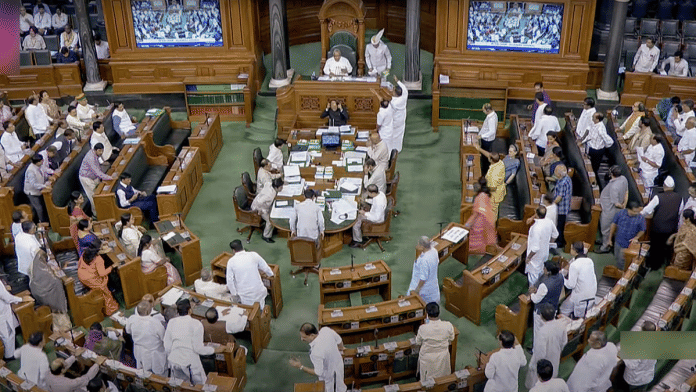New Delhi: A total of 5,61,272 individuals have given up their Indian citizenship since 2020, the Ministry of External Affairs has said.
According to a statement that the Union Minister of External Affairs, S. Jaishankar tabled in Lok Sabha Friday at the ongoing Monsoon Session of Parliament, a total of 85,256 individuals renounced their Indian citizenship in 2020. But this number increased over the next two years, touching to 1,63,370 in 2021, and 2,25,620 in 2022 — the highest since at least 2011, when a total of 1,22,819 Indians gave up their citizenship — the government data showed. Since 2011, 17,50,466 Indians have given up their citizenship.
A total of 87,026 individuals have renounced their Indian citizenship until June this year, according to the minister, who was responding to a question by MP Karti Chidambaram.
India doesn’t allow dual citizenship, and those seeking citizenship in other countries must give up their Indian one.
Work, according to him, is the top reason for this decision.
Government data also shows that those who renounced their Indian citizenship went to 135 other countries — including those with known security situations, such as Sudan, Yemen and Myanmar, as well as India’s neighbours Bangladesh, Nepal, Pakistan, and Sri Lanka.
However, it’s unknown how many people applied to each of these countries individually.
Also Read: Citizenship took a back seat to the Partition, ‘Indianness’ was never fully defined
Foreign citizenship for work, personal convenience
Work, according to Jaishankar, is the main reason for Indians giving up their citizenship. “The number of Indian nationals exploring the global workplace has been significant in the last two decades,” Jaishankar said. “Many of them have (also) chosen to take up foreign citizenship for reasons of personal convenience.”
ThePrint reported earlier how Indians had given up their citizenship for marital purposes — especially those who have applied for Pakistani citizenship.
In response to a question on whether the government has any plans for course correction measures to reduce Indians relinquishing their citizenship, Jaishankar highlighted a range of initiatives centering on his government’s ‘Make in India’ to help “harness” their talents in India.
“At the same time, to take full advantage of the contemporary knowledge economy, we have also promoted skills and startups,” Jaishankar said.
Calling the Indian community abroad an “asset to the nation”, the minister said the government had brought about a “transformational change” in its engagement efforts with the Indian diaspora.
The government, Jaishankar said, has a clear approach to tap diaspora networks and utilise its reputation for “national gain.”
“The (central) government’s efforts are particularly aimed at encouraging the exchanges of knowledge and expertise in a manner that would contribute to India’s national development,” Jaishankar added.
(Edited by Uttara Ramaswamy)
Also Read: Land, citizenship — Pakistani Hindus in Barmer battle for dignity, scared they may have to return






